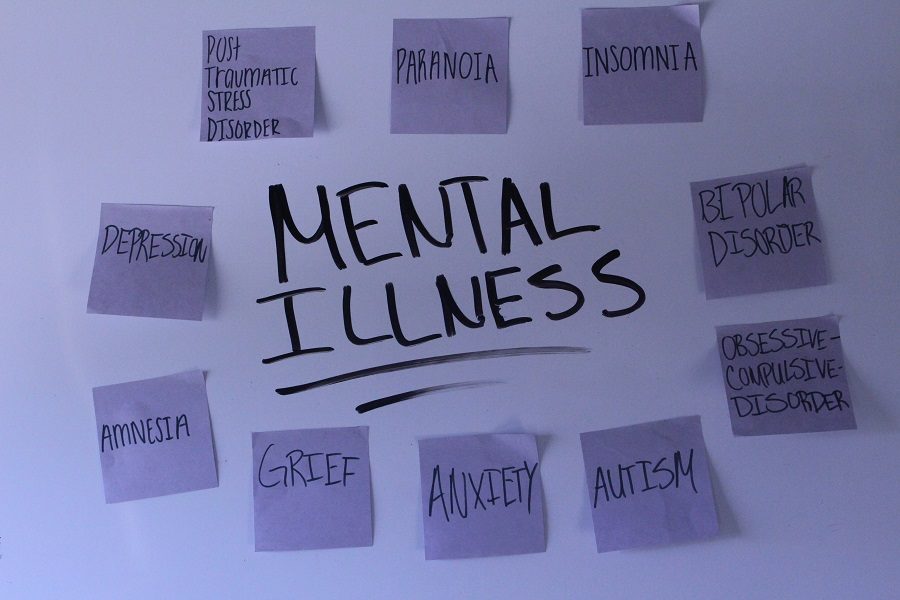Myth vs Fact: Mental Illness (Editorial)
More stories from Maya Daye
Mental illness is a topic that is very controversial. Some people think people fake mental illnesses for attention, while others think that it is very serious and should not be taken lightly no matter what. Some people think that it doesn’t even exist. There are various myths about things regarding mental health; here are just a few.
Myth: Mental illness doesn’t exist.
Fact: Wrong! Mental illness is very much real and it affects millions of people. According to Triadmentalhealth.org, more than 60 million Americans have a mental illness in any given year, including one in four adults and one in five children.
Myth: I can’t have a mental illness, I’m [insert race here]!
Fact: This is completely untrue; your race does not make you immune to mental illnesses. Mentalhealthamerica.net tells us that over 6.8 million of the 13.2% of the U.S. population that identifies as Black or African-American had a diagnosable mental illness in 2014, and over 8.6 million of 17.4% of the U.S. population that identifies as Latino/Hispanic had a diagnosable mental illness in 2014.
Myth: People with mental illnesses are violent.
Fact: Not all people with mental illnesses are violent. In fact, Nami.org (website for National Alliance on Mental Illness) says that people with mental illnesses are actually more likely to be the victims of violence.
Myth: OCD just means you’re a neat freak.
Fact: This is actually a very widespread stereotype. The definition of OCD (Obsessive Compulsive Disorder) is “a common, chronic and long-lasting disorder in which a person has uncontrollable, recurring thoughts (obsessions) and behaviors (compulsions) that he or she feels the urge to repeat over and over.” Being a “neat freak” has nothing to do with it.
Myth: People who are “mentally ill” are just faking it for attention.
Fact: Actually, there is a mental illness (Histrionic Personality disorder) in which people do do things for attention, as well as disorders that cause people to fake mental illnesses (Factitious disorders.) Unless one has either of these, it is highly likely that they can not fake their mental illness for attention.
These were just a small portion of myths about mental illness; there are so many more. To help those with mental illness, we need to learn more about these disorders and dispel the myths surrounding them.
Disclaimer: Articles designated as “Editorial” represent the views and opinions of the author, not the 2016-2017 Periscope staff, CHS Administration, or the CHS student body.
Want to help the Herd? Please consider supporting the Periscope program. Your donation will support the student journalists of CHS and allow us to purchase equipment, send students to workshops/camps, and cover our annual website hosting costs.





























































































Sam Haseman • Mar 24, 2017 at 3:41 pm
As our understanding of the brain grows, I think that psychologists will face an interesting question: When we can categorize every human behavior and its source, at what point do we just say that something is a normal emotion as compared to a mental illness? What level of lessened dopamine receptor numbers is clinical depression as opposed to just being sad? When is someone being overly talkative as opposed to experiencing the symptoms of a mental condition? While I think it’s very important to help people with their mental health (even if they are just sad), I also feel that we should beware as a society of overcategorization.
Jacob Fisher • Mar 24, 2017 at 12:10 am
Regarding the question of whether all mental illnesses or “purported mental illnesses” should be taken seriously by a person. I am unsure as to what your opinion on the matter was. I believe that in a society that constantly learns more and more about the brain and it’s complexity; it is also important to realize that many people deal with “silent battles” meaning mental illness. This mental illness is not always something that has a physical symptom and because of this it is key, I believe that everyone in not only our school but the entire world is treated respectfully by one another because one rude or rash comment could hurt someone in more ways than intended.